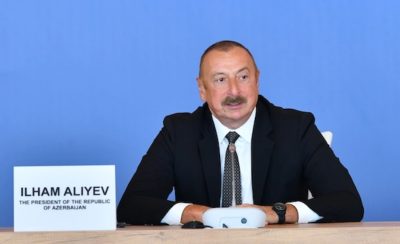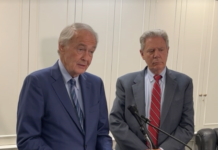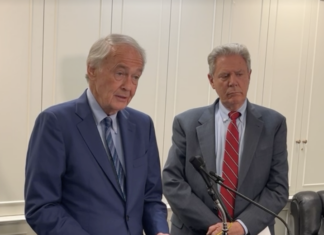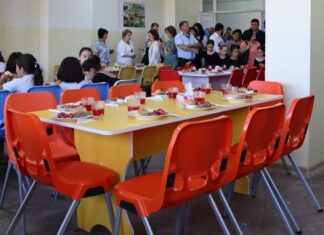By Thomas C. Nash
Special to the Armenian Mirror-Spectator
CAMBRIDGE, Mass. — Mia Farrow, when at a loss for words in describing the ongoing genocidal atrocities in Sudan, relied on the photos she had taken to show an audience at the Holy Trinity Armenian Apostolic Church on Thursday, April 20, that the two genocides, nearly 100 years apart, bear a startling, and urgent, similarity.
The Hollywood actress turned humanitarian activist said that she
first heard of the genocide in the Darfur region of Sudan when the world was marking the 10th anniversary of the Rwandan Genocide. During the course of three months, she noted, the world was transfixed by the OJ Simpson trial while one million Rwandans were hacked to death by soldiers wielding machetes.
When she learned in 2004 that similar violence was occurring, she decided to take action, saying, “My own family motto is with knowledge comes responsibility.” That year, she made her first trip to Sudan, which became her first of 13. Speaking at Holy Trinity Armenian Apostolic Church as a part of the Dr. Michael and Joyce Kolligian Distinguished Speaker Series, she began telling her the story of how she became involved by alluding to the Armenian Genocide as the first of “an unbroken chain” of massacres that followed.
“I am sorry for your loss, deeply sorry,” Farrow said. “Tragically, we have learned nothing since that first genocide of the 20th century. We, the international community, have been by-standers again and again and again.”
The statistics she rattled off to illustrate the severity of the ongoing crisis in Sudan painted a grim picture. Eighty to 90 percent of the villages of Darfur, according to one estimate, have been completely destroyed. Farrow also said a relief worker is confident 100 percent of females over the age of 8 in one camp have been raped.
The focus of Farrow’s presentation, however, was on her personal experiences in refugee camps. She related stories of those she met — many of whom she fears have since been killed.








